My Life Story - Interview
by Andy Cassidy
published: 16 / 2 / 2012
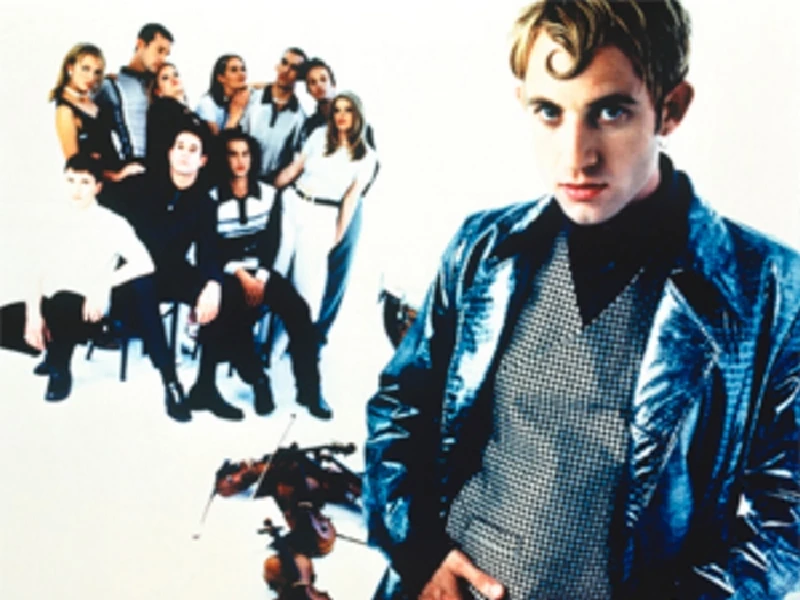
intro
Andy Cassidy talks to Jake Shillingford, the front man with 90's orchestral pop outfit My Life Story, about his group's career and his decision to play their influential album, 'The Golden Mile', live for the first time
Of the countless bands which emerged during the Britpop era of the early- to mid-nineties, few were as musically inventive as My Life Story. Drawing on classical influences infused with fantastic pop-sensibilities, My Life Story were more chamber orchestra than pop band. Fronted by the ebullient Jake Shillingford, the group released four studio albums and two compilations to critical acclaim and commercial success. In the past few years, My Life Story have reunited on several occasions for one-off gigs, and, on March 3rd, they will perform their classic 1997 album 'The Golden Mile' live for the first time. The album, which features the hits 'Twelve Reasons Why I Love Her' and the magnificent 'Sparkle', is widely considered to be the group’s magnum opus, and highlights Shillingford’s gifts for songwriting and orchestral arrangement. Lead singer and songwriter Jake Shillingford spoke to Pennyblackmusic about the reunion gig, his infamous kiss-curl hairstyle and an imaginary punch-up between himself Belle and Sebastian’s Stuart Murdoch. PB: I would imagine you guys are pretty busy at the moment, preparing for the gig? I’m really excited about it. JS: You’re not the only one! PB: Yeah, I am travelling down from Glasgow, so I hope you put on a good show! JS: Wow. Well, one of the things with My Life Story is that it’s sort of a mountain to Muhammad thing. With a band so large the logistics of doing even a short tour just wouldn’t make it financially viable. We do it pretty much for love anyway, so we have to set up stall and hope that everybody travels down. PB: I’m sure they will. I’ve read a lot of very positive things online about the gig, JS: It’s strange how nowadays you can get the feeling for the expectations of a show, certainly when you’re in a situation like we are where we rarely play, and I suppose a lot of bands from our era no longer play as well, with the exception of the Blur reunions and the Pulp reunion, the larger bands of the 1990s…it’s fantastic to be able to see that, and as a musician it certainly makes you feel focused on trying to put on a really good show. PB: The My Life Story single ‘Girl A, Girl B, Boy C’ was produced by Giles Martin. It must have been pretty daunting for a group of young musicians to be working in the studio with the son of the Beatles’ producer. JS: Well, if you want to know the real truth, we were doing a gig at the Marquee in London. Obviously the venue has a great heritage and we were really pleased to get a gig there, and we were approached by Giles after the show. It was the classic young band story – these things actually do happen. It is possible to do a gig, walk off stage and somebody well-connected or an A&R man will come up to you. It happens. He introduced himself as Giles Martin and obviously the surname Martin is a fairly common name, and he basically assumed that I knew who he was, and he said that his father had opened a studio in Belsize Park, which is only two tube stops from Camden, so it was very much part of the 90’s Camden thing. He said that he would like to record us and make a demo. He said that he really liked our stuff and that he’d really like to help us out. And he just took it for granted that I knew who he was but I didn’t make the connection. I just thought he was a really nice bloke, whose father owned a studio very, very near where we lived so we would go and check it out. He gave me this address – I actually lived yards away! – so I walked up Haverstock Hill and there was a Budgen’s Supermarket, a hairdresser’s and an off-licence and the number of the studio was after the off-licence and basically I couldn’t find the number. The only thing after the off-licence was a huge Victorian church. Anyway, I phoned him, and said that I couldn’t find the studio anywhere and he said, “Just come into the church.” And then I realised –it was at that moment all the pennies dropped, the number was this huge church. I walked in there and I actually met his dad straight away. It’s really interesting. It’s called Air Lyndhurst and we were the first band to record in it. The first artist to record there was Henry Mancini, and we were the first band, so that was a great honour. And, so, that was the beginning of the journey, just getting discovered at random by a very well connected, and a really lovely guy. PB: It took a while for MLS to become successful. Did you worry for a time that it just wasn’t going to work out for you? What kept you going through that period? JS: Yeah, we were very worried, because if you’re a band that’s going to fuse baroque and classical influences, you don’t just happen by meeting a couple of people in a pub and saying let’s get a band together. One of the reasons why we share a lot of fans with bands like the Manic Street Preachers is that, like the Manics, MLS had a manifesto. It’s something that I’ve always loved. Even despite a lot of my friends not talking to me, I love bands like Sigue Sigue Sputnik because I like the brains behind it. I love the military organisation that’s required to try and create something. I find that really interesting. Don’t get me wrong, we very much believe in organics and emotion and stuff like that. We weren’t trying to plot every move. The idea of MLS is more of creation, to try to give people something a bit different to listen to other than the endless grunge music and faceless acid house stuff that was being played on ‘Top of the Pops’ at the time. Certainly in the underground bars and clubs that we were playing at in London, people could really see that MLS would work and remember ‘Girl A’ was released in 1993, but we had been doing it for quite some time. It was a bit scary when a lot of bands were getting signed and we weren’t even being looked at – one of the reasons why that was because, even though we had the mindset and the look, I had always liked the shambolic nature of punk and we were quite shambolic in a way, and then trying to marry that with classical musicians who actually wanted to move away from their world. It just took a little while for that marriage to happen. There were a lot of worries about that, but in a way that really galvanised the band. I think most of the musicians that joined MLS saw it as something to do on a Thursday night. There would be ten, sometimes twelve of us in a rehearsal room that was built for four people and it was an opportunity to network and talk about music and shared interests, and those shared interests would be things like John Barry and film composers – we weren’t sitting about talking about the type of bands that the Britpop lot were into. I guess it took a little while for the music industry to see our commercial potential, and I suppose like a lot of bands who do something a bit different I think the major music industry saw it as “are they a band that would have legs?” And the other thing is I think A&R men were looking at the band and thinking “How much is this going to cost?” I think one of the reasons you said that there are a lot of people talking about the MLS show is that in some ways I don’t know if you could have a band like MLS now that were created from the street. Nowadays if I wanted to do the same thing I would have to get a deal on my own and then hire in some session players which is the antithesis of what MLS are about - we’re a real band. PB: The big news is that My Life Story are reuniting for gig in March, playing ‘The Golden Mile’ for the first time in its entirety. There is some pretty unconventional marketing ideas around this gig – I’m talking, of course, about the Golden Ticket. For those who haven’t heard what the show entails, could you tell them what’s going to happen on the evening? JS: With MLS I’ve always tried to give people something a little different, the election night gig being an example where we had the swing-o-meter which went between blue and red. This idea [The Golden Tickets] came about because we were thinking of doing two nights sitting down and although that would have worked, we weren’t sure about the idea of an entirely seated gig – just in the back of my mind it didn’t feel right. We then wondered if we could do another gig and then we thought we live in this world now with a DIY culture, and people like Trent Reznor and many other groups offer the standard package, and then you offer a deluxe CD with extra pictures and whatever you’re going to give the fans for that extra price, and we thought why don’t we do something similar from a live point of view? So we’re performing ‘The Golden Mile’. We have encores planned should we be asked back and that is the normal concert, but if you want to get the golden ticket, then in addition to the concert you’ll be given a laminate when you go through the box office. I like the idea of the laminate because people can recognise other golden ticket holders - it will be a form of elitism (laughs), “I’m a bigger fan!” - like two Morris Minor drivers waving to each other! Those ticket holders will get to stay behind, the band will then go back on-stage and we’re going to do a short set based on a few suggestions from a few fans who have written to us. There is going to be a meet and greet with the band and also Ben Gilbey, who’s been our artist for many years is working on a lovely art print which will be a limited edition for the Golden Ticket holders. They’ll all be signed and it’s a real nice memento, really something that you could frame and put on your wall. So, you’ll get one of those and then an after-show party till one in the morning. PB: In the past you’ve imposed dress codes on your gigs. Is there a dress-code for the London gig? I’m thinking suited and booted with a kiss curl. JS: I’ve been really thinking about it for this one…All I’ll say is that a kiss-curl is quite hard to maintain! But yeah, I think we’ll put a few emails out on the mailing list to get some suggestions as to how we should do the dress code. ‘The Golden Mile’ era was very much about gold, red and black, so I’m wondering if we should do colours or, like you say, the general suited and booted dress code. PB: I think the golden ticket is a fabulous idea, but it’s something that I imagine a lot of bands would baulk at – so many artists nowadays seek to distance themselves as far as possible from their fans. You seem to take a different approach to this. What do you enjoy about meeting fans in these situations? JS: We always have tried to meet the fans. I don’t know if that’s because of the size of the band, and because there are so many of us, you can spread the love. I don’t think I ever felt, even being the frontman of the band, unnecessary pressure from the fans…sometimes you can’t really explain how you feel. I got into a band because I wanted to communicate and I wanted to meet people. There’s a real difference between people who got into bands in the 60’s, 70’s and 80’s to people who get into bands now, post-Napster. I got into a band to escape what my life was and to try to find something new, meet new people and expand my horizons, so that’s probably got something to do with it. I think nowadays quite a lot of people are getting into bands not to escape but almost the complete opposite. For me it was like a rite of passage, as in I need to do this to be the person I want to be whereas you meet quite a lot of musicians now and they’re like,“Well, I’d quite like to sign a deal and maybe put an album out and then I think I might become a snowboard instructor for five years and then I’ll go scuba diving.” PB: Do you think MLS will continue to reunite for anniversary gigs like this one? If so, what’s next? It will be the twentieth anniversary of ‘Mornington Crescent’ in 2014. Are you up for that? Do you think there’s any chance of the band recording any material together? JS: Well, I was laughing with the band the other day. We’ve got now that we could celebrate the first reunion gig! There are lots of reasons to get together really, so give us a reason and we’ll get together. I’ve got no idea what we’re planning to do, but the idea of having a little space and then getting back together is really important. I’m starting to think that maybe I’d like to go out and do a few solo shows which means I can get up and get around a bit, maybe do a few MLS songs, maybe with a smaller band. I’m sure that MLS fans wouldn’t be too offended if I didn’t lug an orchestra around with me. PB: Give me five words telling people why they should come along to the gig at Shepherd’s Bush Empire on March 3rd. JS: Oh you bastard! Oh, okay. Nostalgia is golden, golden, golden! How about that? PB: Finally, you and Stuart Murdoch in a fist-fight: who wins? JS: (Laughs) Me and Stuart Murdoch? I think it would be Paper, Stone, Scissors between us! PB: Thank you.
Band Links:-
https://mylifestory.band/https://www.facebook.com/MyLifeStoryUK/
https://twitter.com/MyLifeStoryUK
Have a Listen:-
Picture Gallery:-
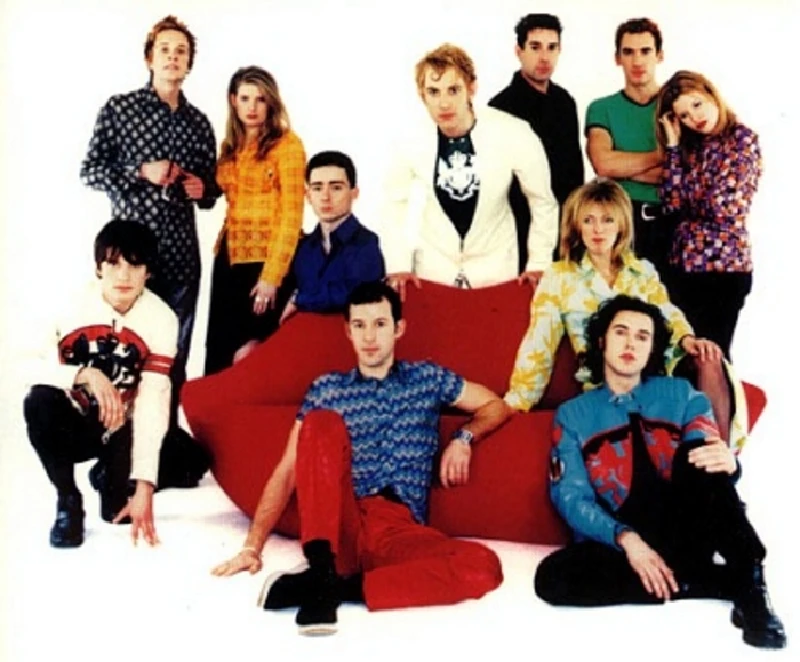
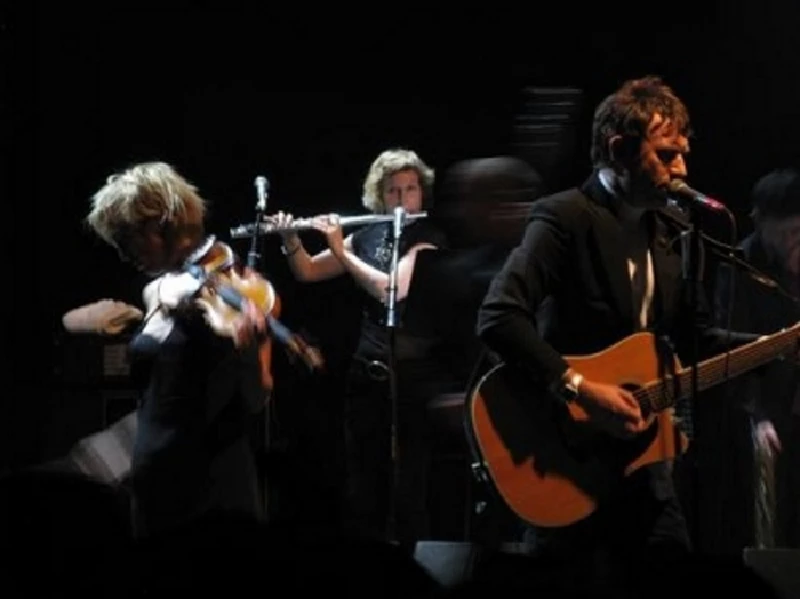
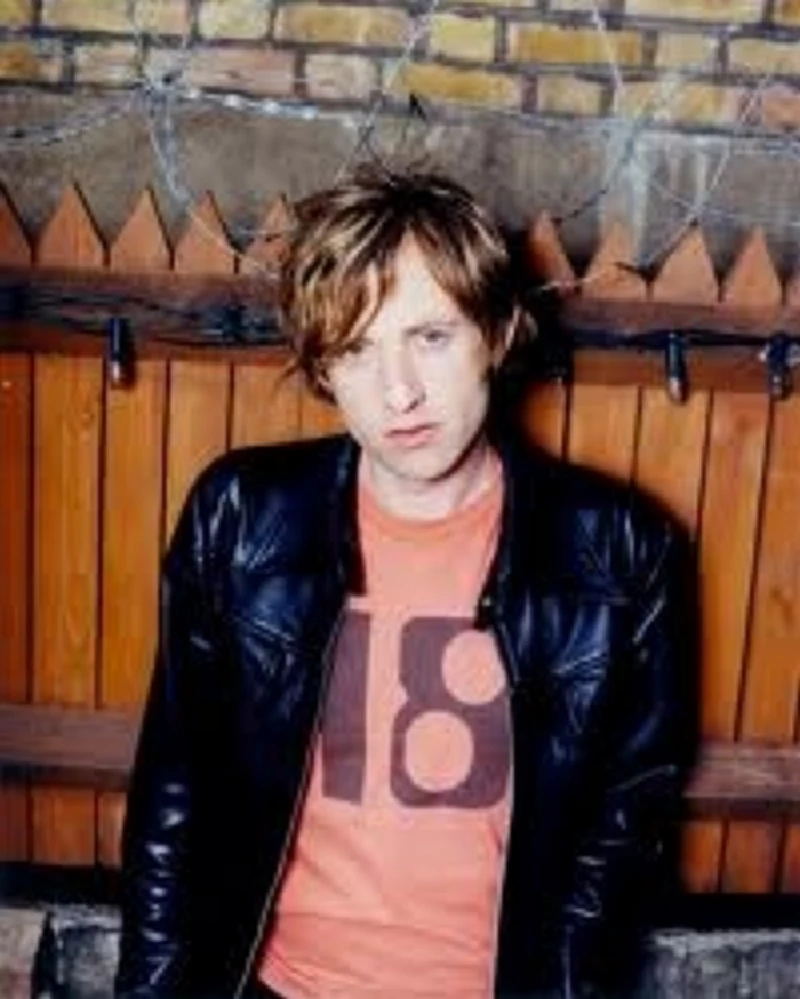
interviews |
|
Interview Part 1 (2013) |
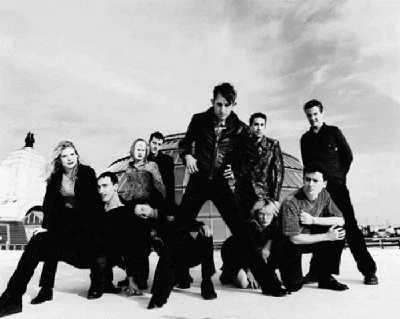
|
| In the first part of a two-part interview, Andy Cassidy talks to Jake Shillingford from London-based orchestral indie pop group My Life Story about his band's twentieth anniversary and their first full-scale UK tour |
photography |
|
Photoscapes (2024) |

|
| Rob Hadley takes photos of Britpop act My Life Story at a gig at the Hare and Hounds in Birmingham. |
reviews |
|
Loving You is Killing Me (2024) |
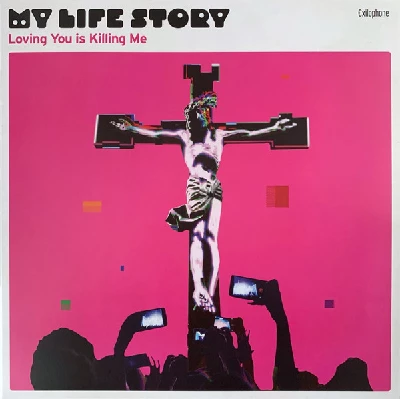
|
| Anthemic second comeback album from Britpop pioneers My Life Story |
| World Citizen (2019) |
most viewed articles
current edition
Carl Ewens - David Bowie 1964 to 1982 On Track: Every Album, Every SongArmory Show - Interview with Richard Jobson
Bathers - Photoscapes 1
Colin Blunstone - Thalia Hall, Chicago, 16/7/2025
Visor Fest - Valencia, Spain, 26/9/2025...27/9/2025
Billie Eilish - O2 Arena, London, 10/7/2025
Robert Forster - Interview
Loft - Interview
John McKay - Interview
Editorial - July 2025
previous editions
Heavenly - P.U.N.K. Girl EPManic Street Preachers - (Gig of a Lifetime) Millennium Stadium, Cardiff, December 1999
Oasis - Oasis, Earl's Court, London, 1995
Beautiful South - Ten Songs That Made Me Love...
Trudie Myerscough-Harris - Interview
Pixies - Ten Songs That Made Me Love...
Prolapse - Interview
Doris Brendel - Interview
Simon Heavisides - Destiny Stopped Screaming: The Life and Times of Adrian Borland
Paul Clerehugh - Interview
most viewed reviews
current edition
Amy Macdonald - Is This What You've Been Waiting For?Sick Man of Europe - The Sick Man of Europe
Alice Cooper - The Revenge of Alice Cooper
Phew, Erika Kobayashi,, Dieter Moebius - Radium Girls
Davey Woodward - Mumbo in the Jumbo
Lucy Spraggan - Other Sides of the Moon
Blueboy - 2
Cynthia Erivo - I Forgive You
Philip Jeays - Victoria
Lapsley - I'm a Hurricane, I'm a Woman In Love
Pennyblackmusic Regular Contributors
Adrian Janes
Amanda J. Window
Andrew Twambley
Anthony Dhanendran
Benjamin Howarth
Cila Warncke
Daniel Cressey
Darren Aston
Dastardly
Dave Goodwin
Denzil Watson
Dominic B. Simpson
Eoghan Lyng
Fiona Hutchings
Harry Sherriff
Helen Tipping
Jamie Rowland
John Clarkson
Julie Cruickshank
Kimberly Bright
Lisa Torem
Maarten Schiethart